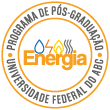Banca de DEFESA: MARIA TERESA VOLTARELLI BARBOSA MOURA
Uma banca de DEFESA de MESTRADO foi cadastrada pelo programa.DISCENTE : MARIA TERESA VOLTARELLI BARBOSA MOURA
DATA : 06/08/2021
HORA: 09:00
LOCAL: Via remoto
TÍTULO:
Natural gas-powered distributed generation: an analysis from the perspective of potential, challenges and application models to improve this technology in the state of São Paulo
PÁGINAS: 88
GRANDE ÁREA: Outra
ÁREA: Multidisciplinar
RESUMO:
Regulation of distributed generation in Brazil started in 2012 by the Normative Resolution No. 482/2012, complemented by the Normative Resolution No. 687/2015, both established by the National Electric Energy Agency (ANEEL), which fostered the increase of the number of distributed generation units so far. However, this expansion is predominantly due to the installation of photovoltaic generating units, which in June 2021 corresponded to 99.9% of all distributed generation units in the country. Natural gas has been underused in this environment, representing, in the same period, only 0.00002% of the generating units. This work proposes to analyze the scenario of micro and mini distributed cogeneration using natural gas, from a technical, financial and regulatory point of view, in order to understand the main challenges for its development and then to raise some new models and services applied to the electricity sector that can help make micro cogeneration powered by natural gas feasible. This study is delimited to the concession area of the São Paulo Gas Company – Comgás, and the segments evaluated were hotels, hospitals, gyms/clubs and residential condominiums. The analyzes performed were based on a bibliographic survey and manipulation of data made available by ANEEL and Comgás. The results showed that there is considerable technical potential for the application of micro and mini natural gas powered cogeneration technology in the study area, mainly in the gym/clubs and residential condominium segments, due to their specific demand profile (heat demand at the same level of electricity demand). In addition to a technical potential, the financial feasibility of implementation of the technology was positive in the cases analyzed, indicating a payback between 3.1 and 5.4 years, considering a technology with an average life span of 10 years. The main challenges associated with the development of the technology were the lack of incentive policies in Brazil aimed at the acquisition and installation of the equipment, exemption from fees and the impossibility of selling the electricity generated, which reduces the benefits of the application, often making it unfeasible. In addition to the absence of these policies, the cost of natural gas compared to electricity, the need to nationalize equipment, as well as the lack of dissemination of knowledge about its operation and maintenance, are the main factors that, translated into costs, make financial viability sensitive. Finally, new models of application in the electricity sector such as Microgrids, Virtual Power Plants and Demand Response were identified as possible models which can increase the the feasibility of applying gas microgenerators and of the models themselves, benefiting both the consumer who installs them and the electrical system as a whole.
MEMBROS DA BANCA:
Presidente - Interno ao Programa - 1548098 - GILBERTO MARTINS
Membro Titular - Examinador(a) Interno ao Programa - 1977178 - REYNALDO PALACIOS BERECHE
Membro Titular - Examinador(a) Externo à Instituição - ROBERTO CASTRO - CCEE
Membro Suplente - Examinador(a) Interno ao Programa - 2333950 - CONRADO AUGUSTUS DE MELO
Membro Suplente - Examinador(a) Externo ao Programa - 433669 - FABIANA APARECIDA DE TOLEDO SILVA




